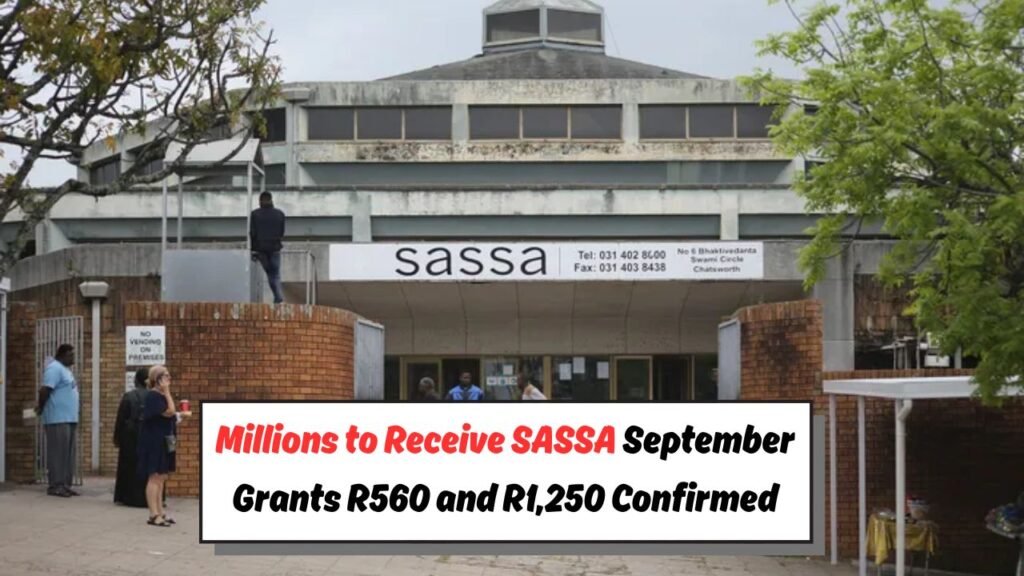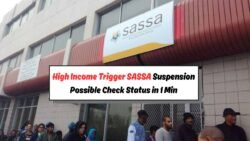Eligibility for SASSA’s September Payments: With the arrival of September, many South Africans are keen to understand if they qualify for the latest SASSA payments, which include amounts of R2,315, R560, and R1,250. These grants are crucial for many households, providing financial relief and support in challenging economic times. Understanding eligibility criteria is essential, as it ensures that the right beneficiaries receive the much-needed aid. The South African Social Security Agency (SASSA) has outlined specific guidelines that potential recipients must meet to qualify for different types of social grants. It’s imperative to stay informed about these requirements, as they can change periodically, impacting who can receive assistance.

Understanding SASSA Grant Eligibility for September
To determine your eligibility for the September disbursements, it’s important to first comprehend the different types of grants offered by SASSA. These include child support grants, old age pensions, and disability grants, among others. Each of these has distinct eligibility criteria. For instance, the child support grant typically requires the caregiver to be a South African citizen or permanent resident and the child must be under the age of 18. Similarly, the old age pension is available to South Africans who are 60 years or older. It’s important to note that income thresholds apply, ensuring that these grants reach those most in need. Given the economic challenges many face, understanding the precise criteria and ensuring all required documentation is submitted is crucial for successful application and continued receipt of these grants.
Key Details on SASSA’s R2,315, R560, and R1,250 Payments
The payments for September are structured to address different needs across various demographics. The R2,315 payment is typically associated with the old age pension or disability grant, providing substantial support to the elderly and those unable to work due to disability. The R560 payment is often linked to the child support grant, aimed at assisting families in taking care of children’s basic needs. Lastly, the R1,250 payment may be allocated to foster care grants or other specific welfare programs. To access these funds, beneficiaries must ensure their banking details are up to date with SASSA, as this facilitates smooth transactions. Additionally, beneficiaries should be aware of the payment schedule to plan their finances effectively. Staying informed about any changes to the grant amounts or distribution methods is also vital, as these can affect monthly budgeting for many families.
How to Apply for SASSA Grants in September
If you believe you qualify for any of the SASSA grants but have not yet applied, the process is straightforward but requires attention to detail. Applications can be made at your local SASSA office or online through the official website. It’s important to have all necessary documentation ready, which typically includes identification documents, proof of income, and any relevant certificates such as birth certificates for children or medical certificates for disability claims. The agency has made efforts to streamline the application process, but delays can occur if documentation is incomplete or incorrect. Therefore, double-checking all information before submission is recommended. Once your application is submitted, SASSA will conduct a verification process to ensure eligibility, after which successful applicants will be notified of their grant status.
Staying Updated on SASSA’s Payment Changes and Announcements
For beneficiaries of SASSA grants, staying updated on any changes or announcements is crucial to ensure continued support. The agency regularly communicates updates through various channels, including their official website, social media platforms, and community outreach programs. It’s advisable to check these sources frequently, especially towards the end of the month when payments are typically processed. Moreover, engaging with local community leaders or support groups can provide additional insights and guidance. These groups often have first-hand information and can assist with navigating any bureaucratic challenges that may arise. Keeping informed not only helps with financial planning but also ensures beneficiaries can take timely action if any issues with payments or eligibility arise.



